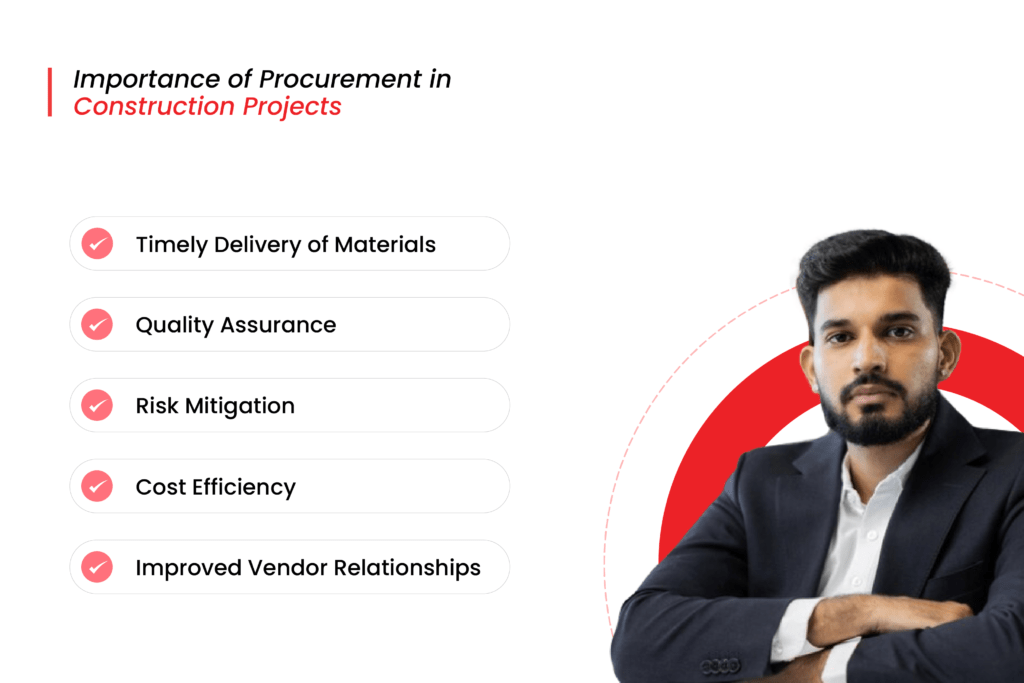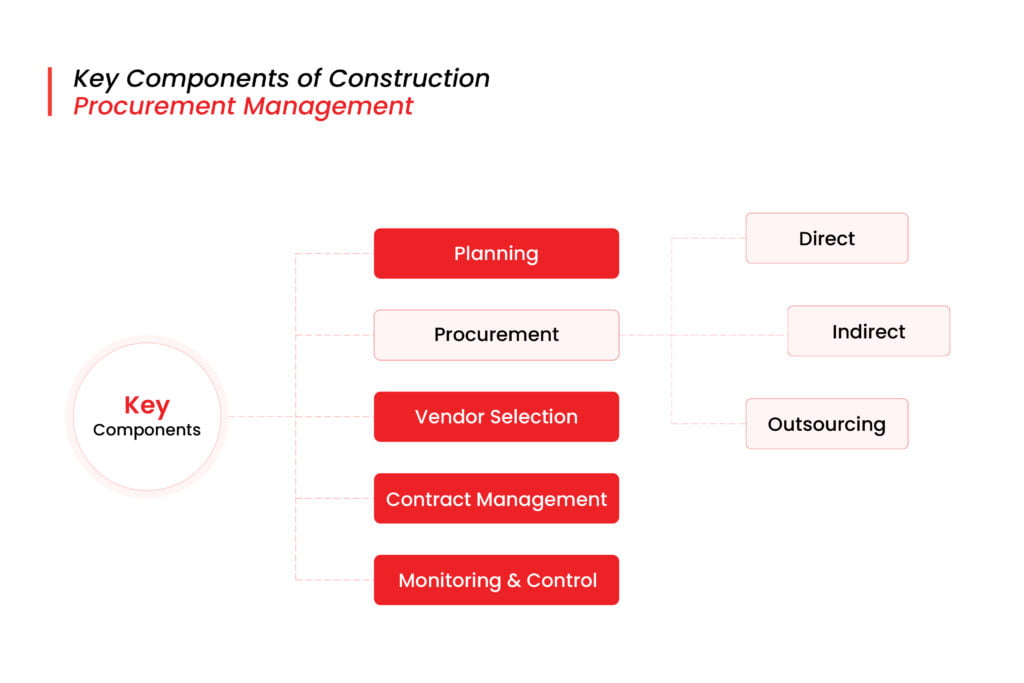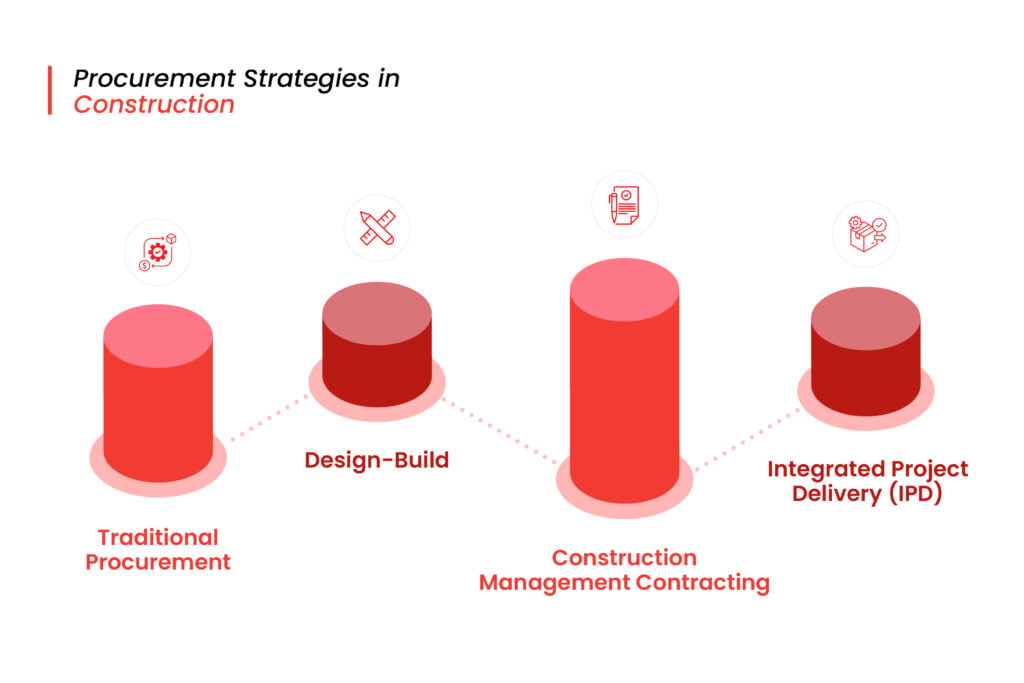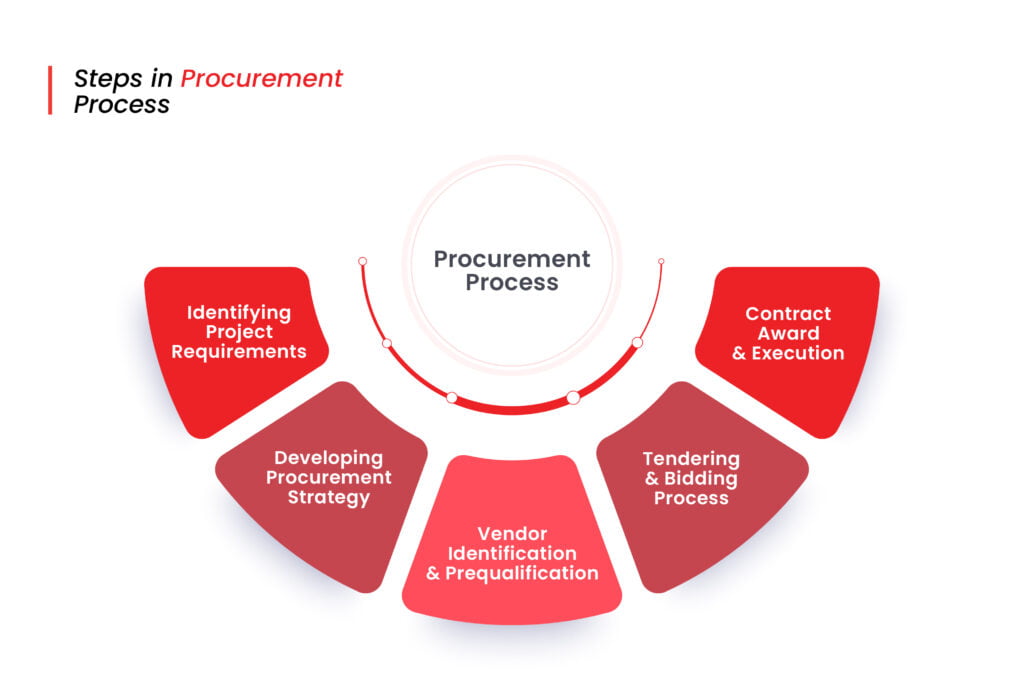In the ever-evolving construction industry, procurement management plays a pivotal role in ensuring the successful completion of projects. Effective procurement management not only helps in minimizing costs but also streamlines processes, ensuring the right resources are delivered at the right time. In this guide, we will explore the intricacies of procurement management in construction, its importance, strategies, and best practices to implement for optimum project success.
Introduction to Procurement Management in Construction
Procurement management in construction refers to the systematic process of acquiring goods, services, and resources necessary to execute a construction project. This involves everything from sourcing materials and selecting subcontractors to negotiating contracts and managing suppliers. The effectiveness of the procurement process can greatly impact the cost, timeline, and quality of the final construction.
Procurement management is not a one-size-fits-all approach but rather a complex process that needs to be tailored to the project’s specific requirements. In construction, it is particularly vital due to the large volume of resources involved, the complexity of operations, and the interdependencies between different phases of a project.
Importance of Procurement in Construction

The significance of procurement in construction projects cannot be overstated. Here are a few reasons why procurement management is a critical element of construction:
Cost Efficiency: By sourcing materials, equipment, and services at the right price, procurement management helps in keeping the project within budget. Effective procurement prevents unnecessary costs and provides room for negotiations, leading to substantial savings.
Timely Delivery of Materials: Delays in the delivery of materials and equipment can result in construction project setbacks. Procurement management ensures timely delivery through proper planning and communication with vendors.
Risk Mitigation: Procurement involves assessing potential risks with vendors, contracts, and logistics. By doing so, project managers can mitigate risks that could lead to project delays or increased costs.
Quality Assurance: A good procurement process ensures that the materials and services acquired are of the required quality, meeting the project’s specifications and standards.
Improved Vendor Relationships: Consistent procurement practices help in building long-term relationships with reliable vendors, ensuring better service and pricing for future projects.
Key Components of Construction Procurement Management

To effectively manage procurement in construction, several key components must be understood and managed well:
Planning
Procurement planning in construction sets the stage for the entire process. This phase involves identifying the resources, materials, and services required for the project, estimating their cost, and scheduling their delivery.
Procurement Types
In construction, different procurement methods can be used, such as:
1. Direct Procurement (buying directly from the manufacturer)
2. Indirect Procurement (through intermediaries)
3. Outsourcing (subcontracting a part of the project)
Vendor Selection
Choosing the right suppliers and subcontractors is crucial. The process involves prequalifying vendors based on their capability, past performance, financial stability, and pricing structure.
Contract Management
Procurement involves negotiating and drafting contracts. Effective contract management ensures that the agreed terms are fulfilled, and both parties uphold their responsibilities.
Monitoring and Control
Throughout the project, procurement activities must be monitored and controlled to ensure that the acquired goods and services meet project requirements and are delivered on time.
Procurement Strategies in Construction

Different strategies can be applied in procurement management depending on the nature and complexity of the construction project:
Traditional Procurement
Also known as design-bid-build, this strategy separates the design and construction phases. Contractors bid for the construction work after the design is completed.
Design-Build
In this strategy, both the design and construction tasks are handled by a single contractor. It leads to faster project completion as design and construction run concurrently.
Construction Management Contracting
A construction manager is hired to oversee and manage the construction process. The owner maintains control over design and construction.
Integrated Project Delivery (IPD)
IPD is a collaborative approach where all parties, including the owner, contractor, and suppliers, work together from the project’s inception to completion, sharing risks and rewards.
Steps in the Procurement Process

The procurement process in construction involves multiple steps that require detailed planning and execution:
Identifying Project Requirements
This step involves determining what materials, equipment, and services are needed for the project. The project manager collaborates with engineers, architects, and other stakeholders to establish a list of requirements.
Developing Procurement Strategy
A suitable procurement strategy is developed based on factors such as project complexity, timeline, budget, and available vendors.
Vendor Identification and Prequalification
Vendors are identified and prequalified based on their ability to meet the project’s technical specifications, quality standards, and timelines.
Tendering and Bidding Process
The tendering process begins, where prequalified vendors submit bids. This phase includes evaluating the bids based on price, quality, and delivery timelines.
Contract Award and Execution
After selecting the most suitable vendor, the contract is awarded, followed by the execution phase where materials and services are delivered.
Procurement Risks and Challenges in Construction Projects
Procurement management in construction comes with several risks and challenges that need to be carefully managed:
Delayed Deliveries
Late delivery of materials can significantly delay project schedules, leading to increased costs.
Cost Overruns
Without a well-defined procurement plan, projects may exceed their budget due to poor vendor selection, scope changes, or unexpected price hikes.
Legal Disputes
Improperly managed contracts can lead to legal disputes between the project owner, contractors, and suppliers.
Quality Control
Ensuring that the procured materials and services meet quality standards is a common challenge in procurement management.
Role of Technology in Modern Procurement
The construction industry is increasingly leveraging technology to enhance procurement processes:
E-Procurement Platforms
These platforms automate the procurement process, from tendering and bidding to contract management, reducing paperwork and improving efficiency.
Blockchain in Procurement
Blockchain technology provides a transparent and secure way of managing contracts and transactions, minimizing fraud and disputes.
AI and Data Analytics in Procurement
AI-powered systems can analyze data to predict market trends, optimize vendor selection, and improve decision-making in procurement.
Best Practices for Effective Procurement Management
To optimize procurement management in construction, consider implementing the following best practices:
Develop Clear Procurement Plans: Establish a detailed procurement plan that aligns with the project’s objectives and timeline.
Prequalify Vendors: Carefully evaluate vendors based on their past performance, financial health, and ability to deliver quality.
Maintain Open Communication: Clear communication between all parties is essential to avoid misunderstandings and ensure that expectations are met.
Use Technology: Leverage e-procurement systems and data analytics tools to streamline procurement processes.
Risk Management: Identify potential risks early in the process and have contingency plans in place.
Conclusion
Procurement management in construction is a complex but crucial element that determines the success of a project. By understanding the key components of procurement, selecting the right strategy, and implementing best practices, project managers can ensure the timely and cost-effective completion of construction projects.
Whether through traditional procurement methods or innovative technologies like blockchain and AI, the future of procurement in construction is evolving, bringing with it opportunities for greater efficiency, collaboration, and project success. If you are looking to transform your office space, contact us today!


